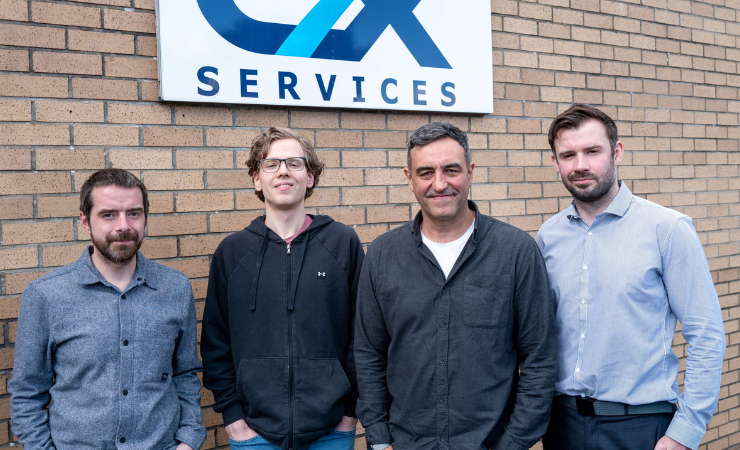Argyllshire-based CX Services has urged more employers to hire neurodivergent workers after offering a full-time job to an apprentice with Asperger’s Syndrome.
CX Services describes its 20-year-old print apprentice Riley Macrae-Duffy as ‘outstanding’ and says employers need to focus on the many positives of hiring people whose brains work differently.
Being neurodivergent means having a brain that works differently from the average or ‘neurotypical’ person. This can include people with dyslexia, autism, attention deficit hyperactivity disorder (ADHD) or Tourette’s syndrome.
Mr Macrae-Duffy has Asperger’s Syndrome, a form of autism that can include difficulties with interacting socially and managing emotions.
Macrae-Duffy said, ‘I was working in a bakery warehouse before, and it was a good job. But I wanted to find a place where I could build a career, rather than just have a job. CX Services have offered me that opportunity, and I’m excited about continuing to grow my skills in digital printing.’
John Lamont, technical services director at CX Services, commented, ‘Riley is an asset to the organisation. His work ethic is outstanding. He puts 100% effort into everything he does. He has a great personality and is a fantastic team member. Riley knows what he’s doing and just gets on with it. He likes to be busy and works quite independently, without supervision.’
CX Services managing director Greg Girard said about 5% of UK businesses were prepared to talk about neurodivergence. But only about 1% of them were prepared to do something about it.
‘If you, like us, are in that 5% that talk about neurodivergence, then you are winning,’ Mr Girard added. ‘If you are also like us and in the 1% that are doing something about it, then even better. But if you’re in the 95% who are in the wilderness and haven’t considered the neurodivergent talent pool, then please rethink your strategies.’
To support Mr Macrae-Duffy, the company is working with Jane Stratton, a cognitive learning expert who specialises in supporting neurodivergent learners.
Mr Lamont concluded, ‘There are some quite devastating statistics on how hard it is for neurodivergent people to get into work. My message to employers would be to focus on the positives. I think people are too quick to highlight potential problems that could arise. But there are a massive number of positives – both for workers and for businesses.’


